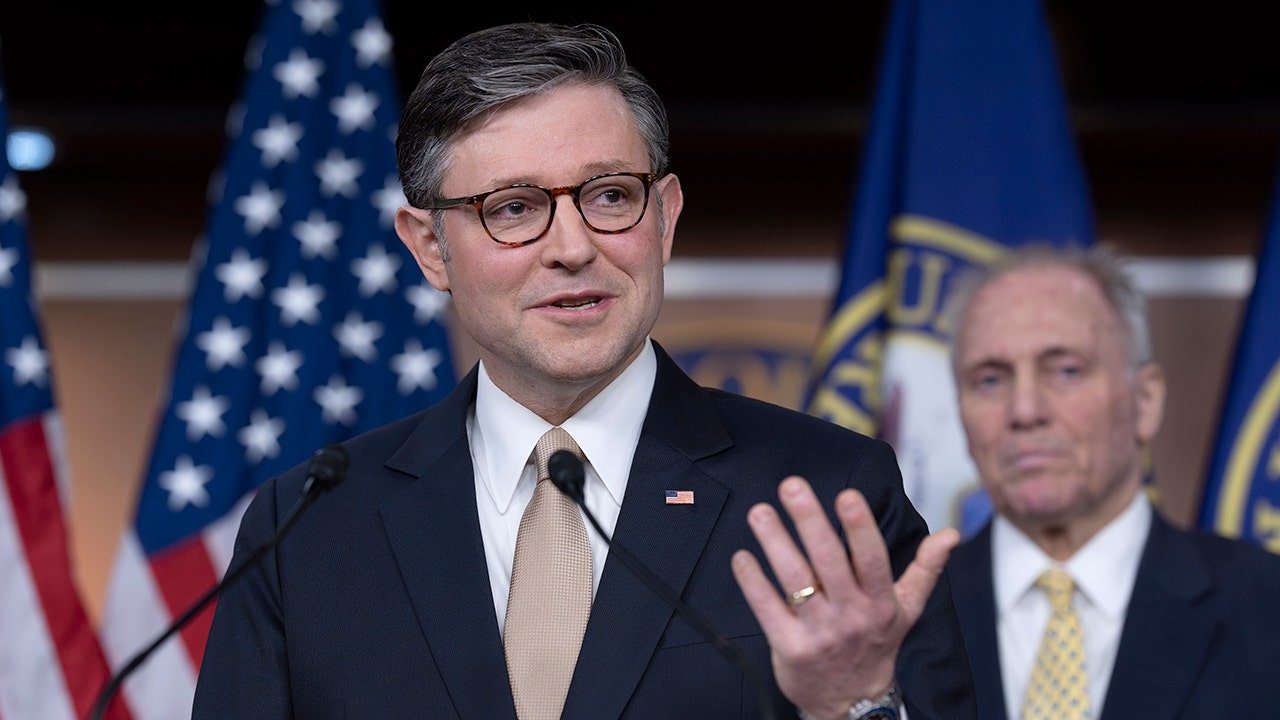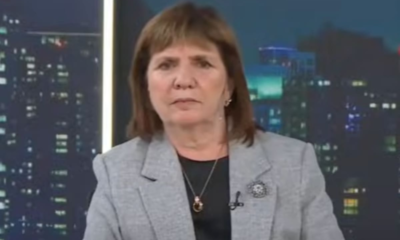INTERNACIONAL
Tras intensas jornadas de enfrentamientos, un alto el fuego restableció parcialmente la paz en Libia

Las intensas jornadas de enfrentamientos en Libia parecieron calmarse -al menos parcialmente- este miércoles, luego de que el Gobierno anunciara un alto el fuego y medidas concretas para restablecer el orden y la calma.
“Las fuerzas regulares, en coordinación con las autoridades de seguridad competentes, han empezado a tomar las medidas necesarias para garantizar la calma, incluido el despliegue de unidades neutrales”, informó el Ministerio de Defensa, aunque sin detallar qué unidades forman parte de estas facciones neutrales ni sus zonas de operación.
“Afirmamos que hacemos frente a los recientes acontecimientos en el marco del deber nacional y de forma que se garantice la preservación del orden público y se eviten los intentos de explotar las circunstancias para agendas que contradicen la legitimidad del Estado y sus instituciones”, sumó el comunicado, que enfatizó en que “la unidad, el refuerzo del Estado de derecho y el desmantelamiento de las armas indiscriminadas son una prioridad inamovible”.
“No se permitirá que se imponga una realidad por la fuerza de las armas, al margen de los marcos oficiales”, insistió el Ministerio.
El anuncio restableció el orden casi por completo, con algunas excepciones en Trípoli, donde los vecinos denunciaron enfrentamientos cerca de una hora después de la noticia.
Según reportó el medio Libyan Observer, se trató de choques entre la Brigada 444, alineada con Abdulhamid al-Dbeibah, primer ministro del dividido Gobierno de Unidad Nacional del país y aliado de Turquía, y la Fuerza Especial de Disuasión (Rada), la última gran facción armada de la capital.
“Es aterrador presenciar todos estos intensos combates. Tenía a mi familia en una habitación para evitar bombardeos aleatorios”, dijo un residente del barrio de Dahra, mientras que otro vecino de Saraj dio cuenta de las pausas momentáneas en los enfrentamientos.
“Cada vez que se detienen nos sentimos aliviados, pero luego volvemos a perder la esperanza”, dijo, aún con temor del alcance de la tregua.
Los peores combates en varios años en Libia, más precisamente en la capital, estallaron a última hora de lunes, luego del asesinato de Abdel-Ghani al Kikli, comandante de la Autoridad de Apoyo a la Estabilización (SSA, por sus siglas en inglés) por parte de otra milicia rival. Según un funcionario del Gobierno, el incidente ocurrió en una instalación gestionada por la Brigada 444, bajo el mando de Mahmoud Hamza, cercano a al-Dbeibah.

La SSA es uno de los grupos con mayor poder en el oeste del país, con un historial de atrocidades y abusos de derechos humanos; inclusive, Al-Kikli contaba con una denuncia de Amnistía Internacional por crímenes de guerra y otras violaciones graves.
Tras el asesinato, Hamza y sus aliados atacaron las oficinas de la SSA en toda la capital, incautaron sus activos y detuvieron a decenas de sus combatientes, obligando a cientos de familias a evacuar en medio de los enfrentamientos.
“Fue una pesadilla”, declaró uno de los vecinos de la capital.
Los choques se calmaron el martes por la mañana y llevaron cierta esperanza de calma, aunque se reanudaron por la noche, con importantes batallas en distritos de toda la ciudad.
La misión de la ONU para Libia, UNSMIL, manifestó su profunda preocupación por “la escalada de violencia en barrios densamente poblados de Trípoli” y los “intensos combates con armamento pesado en áreas densamente pobladas por civiles” que, advirtió, podrían “constituir crímenes de guerra”.

Es por ello que exigió un alto el fuego inmediato que permita, en el corto plazo, el establecimiento de “corredores seguros para la evacuación de los civiles atrapados en zonas de intenso conflicto”, y, en segunda instancia, el restablecimiento de la calma total.
Libia lleva años inmerso en un clima de inestabilidad. En 2011, un levantamiento respaldado por la OTAN derrocó al autócrata Muamar Gadafi y derivó, en 2014, en la fragmentación del país entre facciones rivales orientales y occidentales.
Los brotes de guerra, sin embargo, se detuvieron con una tregua, en 2020.
(Con información de Reuters)
Africa,Civil Unrest,TRIPOLI
INTERNACIONAL
Fox News Poll: The GOP is seen as more likely to have a clear plan for the country

NEWYou can now listen to Fox News articles!
With the 2026 midterm elections more than a year away, a new Fox News survey finds that while the Republican Party has lost some ground to the Democratic Party on handling key issues, voters are more likely to think the GOP has a clear plan for dealing with the country’s problems.
The survey, released Thursday, finds that by a 10-point margin, more voters think the Republicans have a clear plan for the U.S. than the Democrats: 43% vs. 33%. Still, majorities feel neither the GOP (54%) or the Democrats (64%) have a plan. This is about where sentiment was three years ago, the last time the question was asked.
FOX NEWS POLL: TRUMP FACING HEADWINDS AT SIX-MONTH MARK
Far more Republicans (79%) than Democrats (51%) are confident their party has a clear plan, and that’s what hurts the Democrats. While at least two-thirds of independents feel neither party has a plan, more trust the GOP (30% vs. 25%).
At the same time, the survey shows some significant erosion in the GOP’s handling of key issues compared to the last time Fox asked in 2023, including in areas where they are traditionally preferred.
Voters view the Republican Party as better able to handle national security (by 14 points), immigration (+6R), and government spending (+5R) while the Democratic Party is favored on climate change (by 23 points), health care (+19D), social security (+17D), education (+15D), and energy policies (+6D).
The parties are rated about equally on inflation (+1D), gun policy (even), the economy (+1R), and foreign policy (+3R).
Compared to 2023, support for the GOP is down on immigration by 4 points, national security by 6, government spending by 6, foreign policy by 9, and the economy by 14. Plus, the Republicans’ 12-point advantage on inflation has disappeared, as Democrats have a 1-point edge today.
While the Democrats have largely maintained support on their best issues, it’s noteworthy they saw a 12-point increase on education, as voters have been split on who would better handle the issue for the last few years.
FOX NEWS POLL: APPROVAL OF SCOTUS AT 5-YEAR HIGH, REBOUNDING FROM RECORD LOW IN 2024
These shifts can mostly be attributed to self-identified Democrats solidifying their preference for their own party’s handling of the issues, as well as independents lessening their support for Republicans or switching to Democrats.
Self-identified Republicans continue to express high levels of support for their party on the issues.
«Independents and even some Democrats had soured on President Biden and the Democratic Congress by 2023 and 2024, but they have shifted to the left a bit in 2025 in response to the policies of President Trump and the Republicans,» says Republican pollster Daron Shaw, who conducts the Fox News survey with Democrat Chris Anderson. «An appreciable part of this is performance related. Without obvious economic and foreign policy victories, independents and soft Democrats could drift to the left, which could scramble the electoral dynamic heading into 2026.»
Overall, views of both major political parties are underwater. By 2 points, the Republican Party has a slightly better favorable rating (44% favorable) than the Democratic Party (42%), but more than half view both parties negatively (56% and 57% unfavorable, respectively). That’s relatively unchanged since April.
Positive views of the Republican Party have shown steady growth since October 2019, while the Democratic Party has been on a downward trajectory, reaching a record low in April (41% favorable).
The Republican Party enjoys more support among their party faithful (83% have a favorable view) than the Democratic Party (78% favorable). Seven in 10 independents have a negative view of both.
CLICK HERE FOR CROSSTABS AND TOPLINE
Conducted July 18-21, 2025, under the direction of Beacon Research (D) and Shaw & Company Research (R), this Fox News survey includes interviews with a sample of 1,000 registered voters randomly selected from a national voter file. Respondents spoke with live interviewers on landlines (114) and cellphones (636) or completed the survey online after receiving a text (250). Results based on the full sample have a margin of sampling error of ±3 percentage points. Sampling error for results among subgroups is higher. In addition to sampling error, question wording and order can influence results. Weights are generally applied to age, race, education, and area variables to ensure the demographics of respondents are representative of the registered voter population. Sources for developing weight targets include the American Community Survey, Fox News Voter Analysis and voter file data.
INTERNACIONAL
«Fake news»: la Casa Blanca trata despegar a Donald Trump del caso Epstein y frenar la tormenta política

La ofensiva contra Barack Obama
Donald Trump,Jeffrey Epstein,Estados Unidos
INTERNACIONAL
Samara Joy, la nueva estrella del jazz mundial, llega a Buenos Aires para compartir “música auténtica, real”

Samara Joy, la gran estrella emergente del jazz mundial, responde con amabilidad (y genuino interés según puede inferirse de su expresión) durante el diálogo con Infobae Cultura por videollamada, en los días previos a su presentación en Buenos Aires. Lo cual es todo un acontecimiento: pocas veces sucede que alguien en pleno auge, se presenta aquí y ahora. Será el martes 29 en el Teatro Coliseo, un buen escenario y una gran oportunidad para poder apreciar su magnífico registro vocal y un fino repertorio que potencia sus virtudes.
En medio del torbellino de su ascenso a la cúpula, esta joven cantante que reivindica y remite a las diosas del género (sí, Ella Fitzgerald y Sarah Vaughan, nada menos), vive estos días con calma y tranquilidad. Cuando se le pregunta si se siente una estrella, o bien, se lo hacen sentir, responde con simpleza: “Creo que sigo sintiéndome como una persona normal y que sigo manteniendo la cabeza fría, centrada en el verdadero propósito de lo que significa la música. Actuar y compartir la música que siento que es auténtica, real, para mí”.
A sus 24 años, Samara Joy se ha consolidado como una de las voces más reconocidas del jazz contemporáneo. Obtuvo tres premios Grammy, incluyendo el de “Mejor Nueva Artista”, distinción que la posicionó con notable visibilidad en la escena musical global. Su popularidad en redes sociales, especialmente en TikTok, facilitó que públicos jóvenes se acercaran al jazz y la música estadounidense tradicional. De todo eso y otras cuestiones, como la familia, su barrio y la comunidad afroamericana en Estados Unidos, habló en esta entrevista que anticipa uno de los shows más esperados del año.
—Te han comparado con Sarah Vaughan o Ella Fitzgerald. ¿Qué podés decir ante semejante comentario?
—Me siento muy afortunada y es porque ellas me han inspirado. Me siento muy honrada de que cuando la gente me escucha, piensen en esas dos grandes vocalistas.
—¿Cómo te cae que hablen de vos como la “gran estrella” emergente del jazz mundial, capaz de atraer a nuevas generaciones?
—Se siente bien. Creo que el jazz sigue siendo una música atractiva. Hay tanta gente creándolo y tanta gente contribuyendo a su sonido y a su presencia hoy en día… Por eso me siento bendecida por formar parte de las muchas voces y músicos que están haciendo música jazz, que la hacen a su manera y la comparten para crear una nueva audiencia.
—¿Crees que los jóvenes afroamericanos, tus congéneres, conocen y se interesan por el jazz?
—Creo que algunos sí y otros piensen que les gusta más lo derivado de él. Quizás les guste la influencia del R&B o el soul más que el jazz clásico. Pero el hecho de que ya haya interés es un comienzo, ¿no?

—Hablando de la música de tu comunidad… ¿Cómo reaccionaste a la noticia de la muerte de Sly Stone?
—Me gusta mucho su música y me entristeció que haya fallecido. Pero hay mucho para escuchar y además nos dejó un mensaje muy positivo a través de su música, por su contribución y una perspectiva única de la vida.
—Cuando recibiste los Grammy, dijiste: “Soy del Bronx”. ¿Qué significa eso? Sabes que el barrio es famoso en todo el mundo y no siempre de manera positiva, pero vos lo conoces muy bien…
—Ser del Bronx, ser de Nueva York… Sabes, hay mucha creatividad por todas partes y mucha música a todas horas. Y creo que ser del Bronx para mí significa estar rodeada de familia, rodeada de música en una ciudad enérgica donde hay tantos tipos diferentes de personas y ámbitos de la vida. Y yo soy una de ellos, ya sabes. Me alegro de hacer oír mi voz en este mar de gente. Así que me siento agradecido de ser del Bronx.

—Por cierto, ¿Qué hay de tus raíces musicales? Me refiero a la música que escuchabas en tu casa. He leído que tu padre y tus tíos eran cantantes.
—Sí. Mi padre es cantante. Tengo antecedentes musicales por parte de mi padre y mis abuelos. Todos están en la lista negra (risas). Todos son munición, todos son artistas de alguna manera. Y el hecho de haber podido estar rodeado de música desde tan temprana edad y haber sido influenciado por la música de su generación, me ayudó mucho a definir mi identidad como artista. Pude absorber diferentes tipos de sonidos, diferentes tipos de música. Y absorberlos en mi propia voz. Por eso creo que pude convertirme en alguien mejor. Fui más consciente de lo que se necesita para hacer música y de cuántos elementos diferentes hay, desde la producción hasta la interpretación, pasando por la mezcla en el estudio y el escenario. Aprendí y asimilé mucho sobre lo que significa ser artista al escuchar la música de las generaciones de mi padre y de mi abuelo. Fueron mis maestros.
—Cuando eras niña o adolescente, ¿Qué tipo de música te gustaba? ¿Música pop o hip hop?
—Escuchaba música pop. Escuchaba mucho R&B… Gente como Destiny’s Child y Musiq Soulchild. También me gustaba mucho un grupo de gospel llamado Commissioned. Pero también escuchaba a clásicos como The Spinners. Muchas cosas diferentes, me educaron bien (risas).

—Saliendo un poco de la música ¿El movimiento Black Lives Matter sigue activo en este momentos tan particular que vive tu país? ¿O es cosa del pasado?
—Mmm… Creo que sigue siendo muy relevante. Especialmente ahora, con lo terrible que es nuestro gobierno en este momento. El movimiento se compone de personas reales, con problemas y preocupaciones reales. Ya sabes, las cosas de la gente común. Así que, en un momento como este, creo que es útil mantener los pies en la tierra con la comunidad y reconocer realmente el papel que tienes que desempeñar para no sentirte impotente y seguir apoyando a las personas que te rodean, por muy terrible que me parezca lo que está pasando. Hay personas sin hogar, personas que están empezando y no tienen nada, así que si puedo hacer que la vida de alguien sea un poco más fácil y contribuir de esa manera… Esa es una forma en la que creo que podemos seguir animándonos unos a otros y mantener y comprender mucho más nuestra humanidad ante problemas como estos: racistas, de género y todos los demás problemas. Hay que mantenerse con los pies en la tierra.
—Eso mismo, los pies en la tierra, aplica para tu momento artístico. Sos muy joven para ya sos muy famosa ¿Cómo se lleva eso?
—Definitivamente. Me siento con los pies en la tierra. Estoy agradecida y siempre quiero mantener esa mentalidad. Porque creo que la creatividad fluye más cuando se es humilde y consciente, pero sin llegar al punto de que eso domine o potencie completamente tu ego. Ya sabes. Así que, sí. Sigo sintiéndome normal.
[Fotos: AD+BN/gentileza Universal Music; Mario Anzuoni/Reuters]

 ECONOMIA3 días ago
ECONOMIA3 días agoEl consumo en Argentina crece 4% en junio, ante menor inflación y más crédito

 POLITICA1 día ago
POLITICA1 día agoMáximo Kirchner declaró una fortuna de 8.300 millones de pesos: representa un 76% más que el año anterior

 POLITICA2 días ago
POLITICA2 días agoLos organizadores de la Derecha Fest pasaron un video de Villarruel y algunos asistentes gritaron “traidora”





































